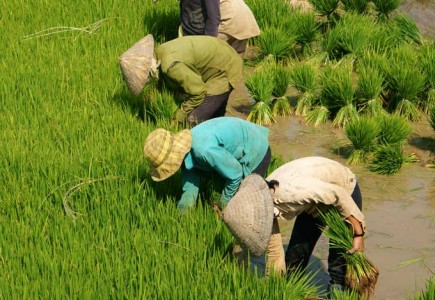World Milk Day 2024 Report – Celebrating Dairy’s Vital Role in Nutrition and Sustainability
This year, on June 1, we celebrated the vital role that dairy plays in delivering…

Would you be surprised to know that production of rice, the most commonly consumed grain in the word and a staple in many diets, reached peak production in 1988? I recently learned this myself after reading a fascinating, and very important, article from The Independent that focuses light on the subject of “Peak Food”. To be clear, the concept of peak food doesn’t mean that we have less rice now than we did in 1988, what it means is that the rate at which production is increasing has been slowing since 1988.
The repercussions of declining increases of production of many of the staple foodstuffs we consume cannot be overstated in a world that is projected to have a population of nine billion people by 2050. Our best chance of feeding a population of that size lays in increasing the production we harvest from the finite resources needed to produce food – land and water. There is simply not enough land and water available to produce the food needed to feed that many people at current production rates. This article, http://www.independent.co.uk/environment/have-we-reached-peak-food-shortages-loom-as-global-production-rates-slow-10009185.html, is a must-read.